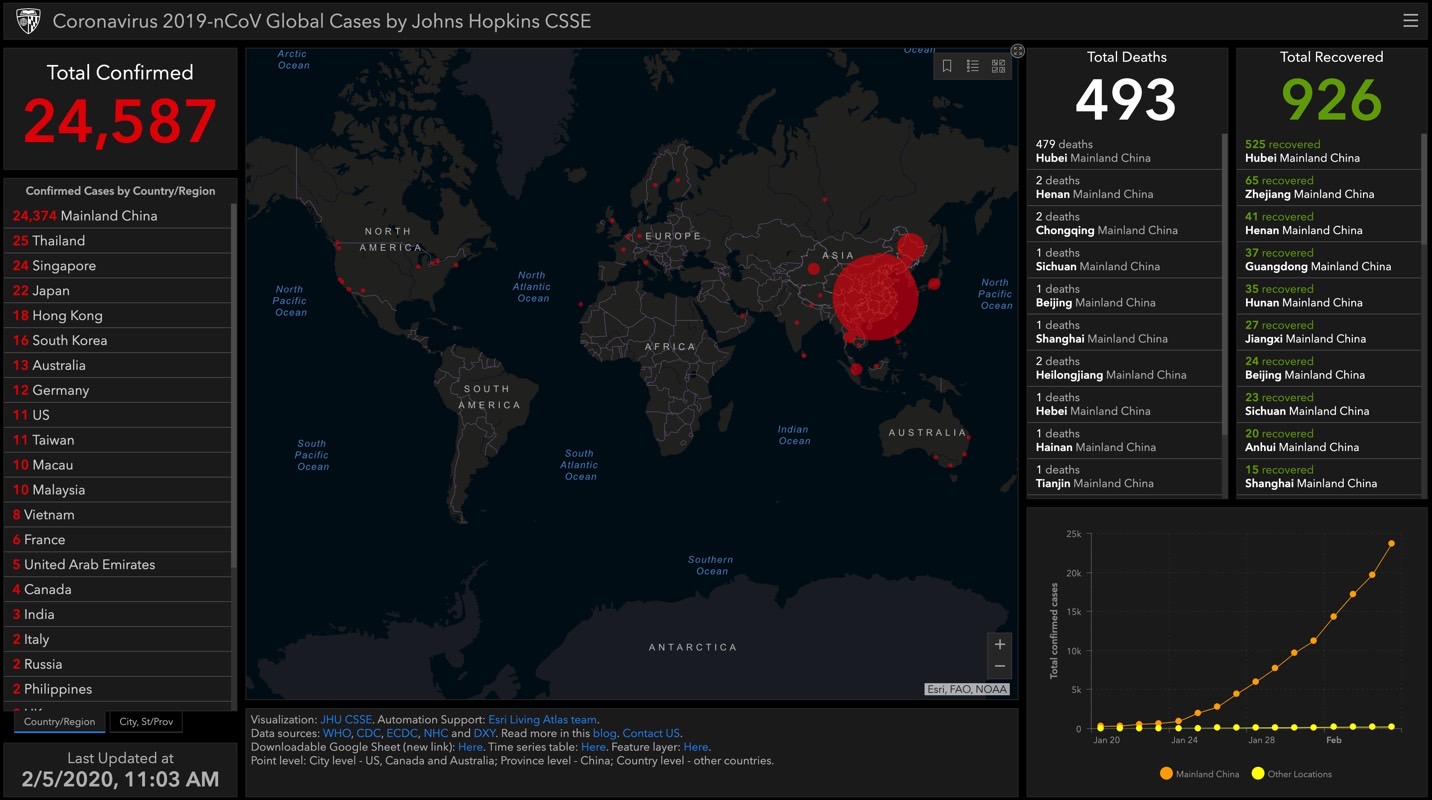A shocking revelation came out of China a few days ago when the country’s health minister Ma Xiaowei said that patients infected with coronavirus are contagious before they become symptomatic. The claim, coupled with the fact that coronavirus doesn’t have specific symptoms that would allow anyone to self-diagnose it, suggested the epidemic might be a lot more dangerous than initially believed, and a lot harder to combat.
Containing the outbreak seems an impossible task if human-to-human infections happen before the onset of symptoms. Ten days after Xiaowei’s remarks, nearly 22,000 additional infections were confirmed, and 410 more people died — the total number of infections is at over 24,500, resulting in 493 deaths. But it turns out that the virus might not be transmissible before symptoms appear, new research shows.
Public health officials now say that Wuhan coronavirus infections are not possible during incubation, and that earlier reports, including a study in the New England Journal of Medicine, were wrong. Apparently, it was a case of lost-in-translation combined with insufficient access to patient data, CNN reports.

The original report said that a Shanghai resident who was infected but didn’t show symptoms visited Germany, where she interacted with local colleagues. She became ill on her return flight to China and later tested positive. Four individuals at the company in Germany then tested positive for 2019-nCoV as well. If this sounds familiar, it’s because Germany was one of the first countries where coronavirus was confirmed in patients who haven’t been to China.
But it turns out that the Chinese citizen did experience symptoms that can be associated with the coronavirus, or a common cold, according to German public health officials:
In contrast to first reports according to which the index case (a Chinese traveling in Germany) seemed to have been asymptomatic during the time of likely transmission here, recent interviews by the Bavarian health authorities and the Robert Koch Institute in Chinese language revealed that she might have had mild unspecific symptoms including back pain and also took antipyretic medication.
The Public Health Agency of Sweden also indicates that infection during the incubation period is impossible:
Data has circulated that the new coronavirus would be infected throughout the incubation period. This information has not been presented in a way that provides scientifically substantiated facts. Rather, it has emerged that the data is unfortunately based on misconceptions. We believe that it is impossible for the new coronavirus to infect throughout the incubation period … This applies, among other things, to an article in the New England Journal of Medicine that has subsequently proven to contain major flaws and errors.
The New England Journal of Medicine is aware of the new developments and is working on a response for the study, which was previously cited by US health officials, including the CDC. The World Health Organization said over the weekend that the “main driver of transmission … is symptomatic cases” and added that it’s aware of possible transmission from asymptomatic individuals, but said it’s rare and not a major factor in the spread of the virus.
That might seem like good news, but considering that the number of confirmed infections goes up significantly each day, it’s not enough. The incubation period can be between 2 and 14 days, according to CDC information. Also, the lack of specificity when it comes to symptoms makes it hard for anyone to realize they might have the virus. If you’re experiencing fever, shortness of breath and coughing, and have been in contact with people who’ve traveled to China recently, you might be infected. But you also might just be a victim of the regular flu. A test to detect the virus is the only way to have the diagnosis confirmed.








